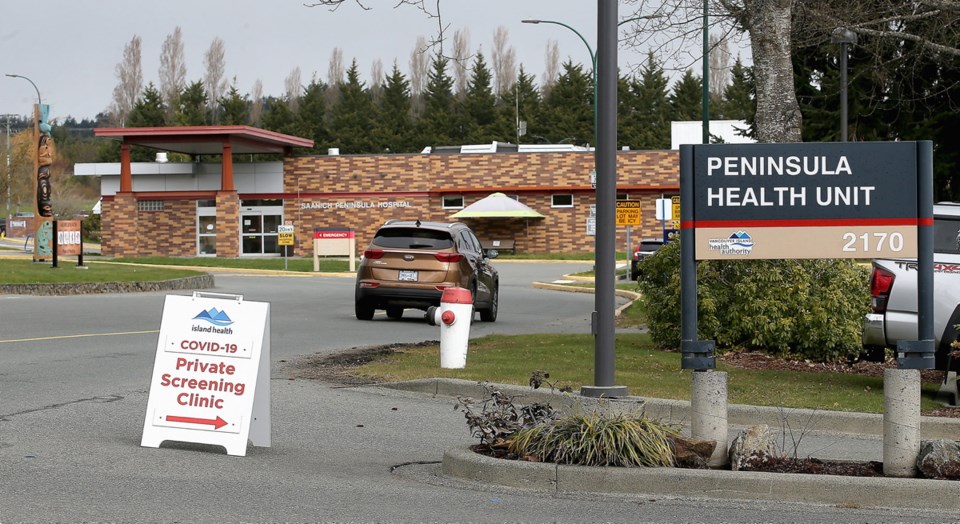Stats point to value of universal health care
Re: ‚ÄúComment: saπ˙º ¥´√Ω among world‚Äôs¬Ýleast prepared for COVID-19,‚Äù Gwyn Morgan, April 3.
I agree with Gwyn Morgan that, as with almost every nation worldwide, we should have been better prepared for this pandemic. I also agree that there are significant issues with our health-care system that need to be addressed, particularly wait times and access to a family doctor.
However, an online check of today‚Äôs statistics shows the U.S., with their largely private medical system, has an infection rate of 834 cases of COVID-19 infection and 22 deaths, per million people. saπ˙º ¥´√Ω‚Äôs rates are respectively 328 cases and six deaths per million.
As serious as these rates are in saπ˙º ¥´√Ω, they‚Äôre substantially lower than those in the U.S., so I find it¬Ýdifficult to understand how Morgan‚Äôs suggested leap to privatization at the end of the pandemic is going to¬Ýautomatically improve the situation.
I would suggest that instead the¬Ýstatistics point to the value of keeping our existing health-care system and finding ways to improve it.
I realize that the difference in the infection and death rates reflects other issues separate from the medical system, such as the quickness of the response once the seriousness was recognized, and the quality of leadership. With regard to these, I will just say that I’m extremely glad to be Canadian right now.
Ron Gibbins
Saanich
U.S. disaster abetted by weak public system
As a physician working within the Canadian health system for 35 years I¬Ýam dismayed to see so much of the Comment section dedicated to the medical opinions of a lifelong oil executive.
While some of his data is in fact correct regarding hospital bed numbers and our standing when compared to others in the OECD, his opinion on¬Ýthe solution is simplistic and driven¬Ýby ideology. This is a poorly argued political piece. We sit a few kilometres north of a country in medical meltdown, where they will literally die on¬Ýthe private medical health hill they¬Ýhave so resolutely defended.
I am confident that post-COVID analysis of the U.S. disaster will demonstrate it was abetted by a weak public system. Rest assured, private health care will not be there for you in a crisis that might destroy the bottom line.
Dr. Nicholas Kimberley
Comox
Keep private enterprise out of health care
At this time, it‚Äôs offensive and irresponsible of Gwyn Morgan to chirp in on the subject of monetizing saπ˙º ¥´√Ω‚Äôs health-care system and, on top of that, criticize our government‚Äôs response to the pandemic. I‚Äôd like to see him step in and do a better job.
The last thing we need in this country is private enterprise inserting itself into our health-care system. Just¬Ýlook south of us now to see how their pay-as-you-go system is working for them. Fragmented, disorganized and predicated on user pay, their system is incapable of a coordinated unified response to this crisis.
Finally, we are seeing how the external business markets are responding: tripling the costs of needed supplies to profit off the backs of global suffering and panic. By way of example, it is reported that airlines are charging three times the regular freight rates to ship goods. Shame on them, too.
John Stevenson
Victoria
Private health care only benefits the rich
Gwyn Morgan‚Äôs call for private health care as a solution to the challenges we face in saπ˙º ¥´√Ω regarding COVID-19 is classic ‚Äî and predictable.
One of the key reasons that we ‚Äúrank dead last in hospital beds per capita‚Äù is because over the past several decades we‚Äôve seen Morgan and¬Ýhis like pushing governments at¬Ýall levels to reduce taxes, the very¬Ýtaxes that fund the medical system.
As to private-sector involvement being the solution, it definitely is — if you’re wealthy. If we did institute private health care, you can be sure that Morgan and others of his ilk would continue to argue for reduced taxes and, hence, reduced financing for the public-health system, further exacerbating the challenges faced by the average citizen seeking health supports.
Adrian Kershaw
Sidney
Raeside cartoon is his most powerful ever
Re: “The Trenches,” Adrian Raeside, April 3.
Adrian Raeside’s The Trenches cartoon is the most powerful one he has ever done.
One’s first reaction is to grin, then it sinks in, the apprehension of the faces in the trench, the personal courage of the poorly equipped nurse and doctor (a bit chubby and a bit out of shape like our under-funded, unprepared medical system?), each individually brave, all collectively determined, the light of hope on the left, charging against the scary, sinister unknown enemy coming out of the darkness.
Tony Keble
Victoria
Praise for all front-line¬Ýworkers
I would like to praise the front-line workers. Applause to all of you. Please know that all of us are so thankful for what you are doing. To the people social distancing: you rock. During this strange time in our world we must all do our part. To hospital staff, police officers and all other front-line workers: thank you.
Carol Dunsmuir
Victoria
Send us your letters
• Email: [email protected]
‚Ä¢ Mail: Letters to the editor, saπ˙º ¥´√Ω, 2621¬ÝDouglas St., Victoria, saπ˙º ¥´√Ω V8T 4M2.
Letters should be no longer than 250 words and may be edited for length, legality or clarity. Include your full name, address and telephone number. Please avoid sending letters as an email attachment. Copyright of letters or other material accepted for publication remains with the author, but the publisher and its licensees may freely reproduce them in print, electronic and other forms.



